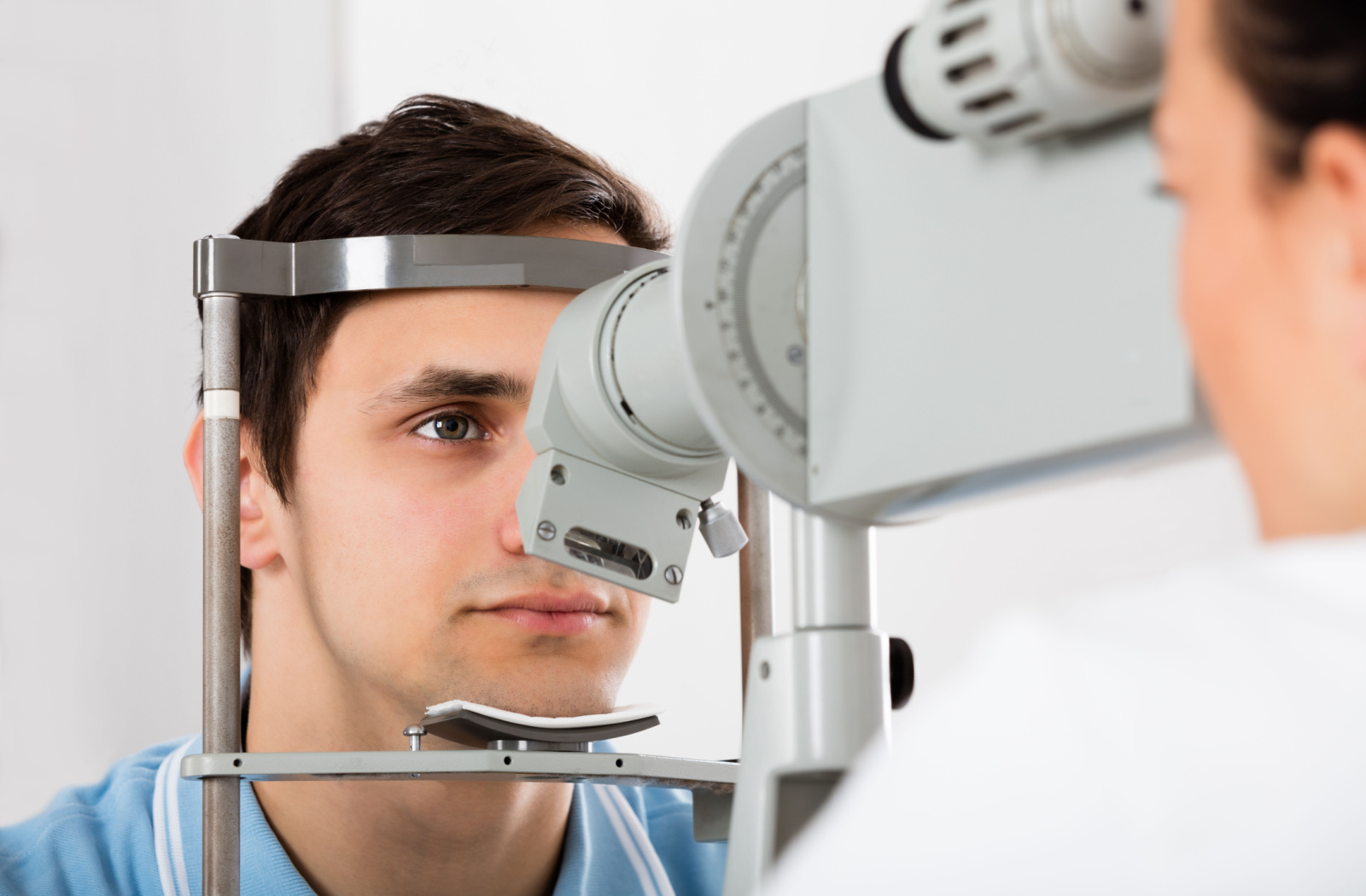Dry eye disease is a common condition that many Canadians experience. There are many ways to find relief from dry eye symptoms, and an optometrist can help by determining the underlying cause of dry eyes and providing tailored treatments.
You don’t have to put up with blurry vision, scratchy, gritty, stinging sensations and red eyes associated with dry eye disease, as several traditional and innovative remedies can help address these unpleasant symptoms and the underlying reasons for dry eye.
The first step is to book an eye exam and explain what you’re experiencing. With a thorough tear system assessment, we can determine and provide treatments for dry eyes that help address the specific causes of your symptoms to give you lasting relief.
What Is Dry Eye Disease?
Dry eye disease is caused by dysfunction of the tear system. Tears are necessary for keeping your eyes moist and healthy. They are produced by glands in your eyelids and are spread over your eyes with each blink. Your tears drain out through tiny openings called tear ducts in the inner corners of your eyelids.
Dry eye disease typically occurs when your tear glands do not produce enough tears or when your tears evaporate too quickly. This issue can occur at any age, be particularly prevalent for high screen time users, older adults and those experiencing conditions like diabetes, allergic conjunctivitis, or Sjögren’s syndrome.
With treatment, dry eye disease can be managed effectively. However, it is a lifelong issue that requires consistent care to reduce symptoms.
How to Treat Dry Eye Disease
There are many ways to treat and find relief from dry eye disease, including:
Artificial Tears
Artificial tears (AT) are over-the-counter eye drops that mimic your tears. AT can be an excellent solution for temporary relief of dry eye symptoms. There are various formulations available to address different types of dry eye disease.
It’s important to speak with your eye doctor before using eye drops to determine the right type for your needs.
Medicated Eye Drops
Medicated eye drops can provide relief for dry eye symptoms by promoting your body’s natural tear production and reducing inflammation. Medicated drops potentially provide a longer-term solution to dry eye issues than the short term relief of AT.
Because medicated eye drops are not accessible over the counter, you must schedule an appointment with an eye doctor to obtain a prescription.
Warm Compresses
Warmth can promote tear formation, boost meibum oil flow, and soothe tired eyes. Heat masks can emit a nice uniform temperature for up to 5 minutes, making them a potentially quick and easy solution for refreshing dry eyes. Massaging the lids after heating can help break obstruction and increase net oil production.
Omega-3 Supplements
The food you eat can impact the health of your eyes. Eating foods with omega-3 fatty acids, such as coldwater fish like salmon, tuna and sardines, can help reduce your risk of dry eyes.
Other foods that contain omega-3 fatty acids include flaxseed, olive oil and walnuts but to a much lesser extent with lower bioavailability.
Omega three supplements in the form of capsules or liquid are a very effective way to supplement omega 3 intake and even come in vegan form.
Modern Treatments
There are several in-office treatments we can use to address the underlying causes of dry eyes and help obtain more lasting relief. Two main objectives of dry eye treatment are to reduce oil gland obstruction and second, is to quiet the inflammation cycle.
For oil gland obstruction, there are several technologies available, TempSure Envy is a top quality and safe Radio Frequency (RF) device used to gently warm and unblock obstructed tear glands. Ilux is another device that utilizes LED light to warm to warm & melt oil in the glands. Once heated, the lids are massaged to express old thick oils. Both of these therapies help break obstruction in the meibomian glands.
Intense pulsed light (IPL) therapy targets inflammation, a vicious cycle initiated by damage to the eye’s tissue. If an eye is dry, it has inflammation. Inflammation is not only responsible for dry eye symptoms but can lead to long term tissue damage. IPL treatment quiets inflammation and helps restore homeostasis. It can also treat conditions like Ocular Rosacea. In fact, many people have full face treatments to effectively address chronic facial Rosacea. IPL therapy is a cornerstone in dry eye disease inflammation management.
In Summary, we have traditional care such as AT, omega3 supplements and warm compresses to help achieve day to day comfort. Now, there is innovative technology to get at the root causes of dry eye disease, obstruction and inflammation.
If you suffer from dry eye, see your Optometrist. They can help you understand your options to improve daily & long term comfort

What Else Can an Optometrist Do?
Optometrists, also referred to as eye doctors, can use their expertise to analyze, evaluate, manage, and correct a wide variety of eye problems and diseases.
Your optometrist can:
- Provide a complete examination including, a full eye health assessment and correction of vision problems
- Prescribe glasses and contact lenses
- Identify eye illnesses and vision problems
- Prescribe medication for the treatment of eye infections and diseases
- Offering pre counseling, referrals and follow up care for eye surgeries, such as cataract or laser eye surgery
- Removing foreign objects, like metal, from the eye
- Recommending eye exercises and providing advice about nutrition for eye health
- Patient education on preventing and treating eye illness, contact lens maintenance, appropriate lighting, sunglasses, and eye safety at home and work
- Recommending patients to primary care physicians based on indicators of high cholesterol, high blood pressure, diabetes, migraines, and other general health conditions
- Acting as an adviser to other healthcare experts
- Diagnosing vision conditions that affect children, adults, and seniors
Start with an Eye Exam
Dry eyes can have a detrimental effect on your quality of life. Traditional remedies such as artificial tears, medicated eye drops, warm compresses, and prescribed medicines can provide some relief, but they are not always effective long-term solutions. New technologies can help reduce the underlying causes of dry eye disease.
Book your eye exam at In Focus Eyecare today for in depth assessment and management of all your eye care needs.





